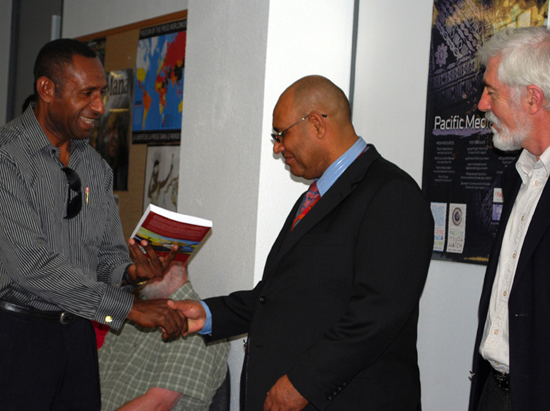
OPINION: Blending and adaptating one culture into the other is a phenomenon experienced the world over, and is no different for Pacific nations, including Papua New Guinea. This relates to almost everything, whether it is farming, policy making and political governance, education or managing personal affairs.
For some time now, Papua New Guinean ways of doing things have been considered not “modern enough” to the West, a concept introduced by the colonial masters that the people were in a way forced to adopt through the colonisation process.
On the other hand, it has also been noted that Western interpretations are also vastly limited to understanding the complexities of the way the people of Papua New Guinea and the Pacific region think and behave.
Seemingly the practices in society today may be the result of that limited Western interpretation and the lack of Papua New Guineans being westernised enough to encompass the mechanics of Western understanding and practices. Thus the Papua New Guinean society today has a bit of both, the Western and the traditional, meshing and working the cogs of society.
However, what is more prevailing in academia, is the lack of consideration and ignorance of Pacific thought by the West, which has in turn impacted in policy making, political governance and decision making in government and private institutions in the country and the Pacific.
It is in this light that understanding local knowledge and benefiting it in Western research frameworks has great potential in sustainable development and economic growth in the country and the pacific region.
The book Communication, Culture and Society: Yu Tok Wanem? is a publication which provides chapters that illustrate the potential of home grown research undertaken from a Melanesian perspective with an inside view of issues by young Papua New Guinean researchers.
Young researchers
Two earlier publications, Media, Information and Development in Papua New Guinea, (2006) and South Pacific Islands Communication: Regional perspectives, Local Issues (2008) with similar contributions by young researchers in the country and parts of the Pacific, form the basis for home grown research that can be taken to another level and carried further.
New Zealand’s only professor of Pacific studies,Tagaloatele Peggy Fairbairn-Dunlop, praised Yu Tok Wanem? as a book strengthening a rich tradition of Melanesian research that is free from Western research dominance.
There is a need for indigenous research in PNG and the Pacific that has to be integrated and ongoing and the results continually circulated for public discussion and potential use within the region.
It is timely now to take ownership of our own learning and finding ways to enhance development through research that will highlight issues affecting the country, and how best these issues can be managed to our advantage.
More so individual efforts with vision to support and ensure original research is undertaken should be given the most praise for showing the way forward in what they believe is good for the development of our country.
While research on a wider scale may be a fairly idealistic concept to many upcoming Papua New Guineans, this is where they ought to actively participate with their understanding of Melanesian perspectives and incorporate elements of this Melanesian view into research processes.
We need to examine issues that impact upon national development and contribute to the knowledge environment where researchers, learners and opinion shapers continually refine information for the benefit of our societies.
The stated books set the trend as scholarly and academically robust publications that were fully researched and compiled with the knowledge of the gaps at the heart of development that required looking at.
More so, they challenge emerging researchers to reflect on the outcome and move forward, engaging in original research and provide perspectives on social issues surrounding the potential and importance of communication induced development.
It is anticipated that these publications will set the foundation and the challenge for a rich and diverse tradition of Melanesian research that will contribute to the development aspirations of the country and region.
Henry Yamo is one of the contributors to Communication, Culture and Society: Yu Tok Wanem?

This work is licensed under a Creative Commons Attribution-NonCommercial 3.0 New Zealand Licence.



